
'Top-Level Chess Is A Bubble': GothamChess, Rensch, Canty Discuss Game’s Future At MIT
It is the prestigious annual event that brings together the global sports industry's big players—and yet again Chess.com was there to discuss the hot topics facing the game.
Cheating, format changes, branding, issues of governance, and even social media comments from a certain former world champion were among the issues covered at this year's MIT Sloan Sports Analytics Conference in Boston.
The main event on day one saw Chess.com's panel discussion chaired by Chief Chess Officer IM Danny Rensch.
"The Digital Gambit" brings together chess legends @DanielRensch, @GothamChess, @GM_Hess, and @gmcanty to discuss the evolution of chess in the digital era with @dmorey #SSAC24 #PowerOfSports pic.twitter.com/DswT6UnZwn
— Sloan Sports Conf. (@SloanSportsConf) March 1, 2024
Joining him were IM Levy Rozman, aka the “internet’s chess teacher” GothamChess, FM James Canty III, GM Robert Hess, and giving a perspective from outside the chess world, President of Basketball Operations for the Philadelphia 76ers Daryl Morey. Following that, the attendees were treated to a simul and, on day two, a conference first—a live chess boxing demo.
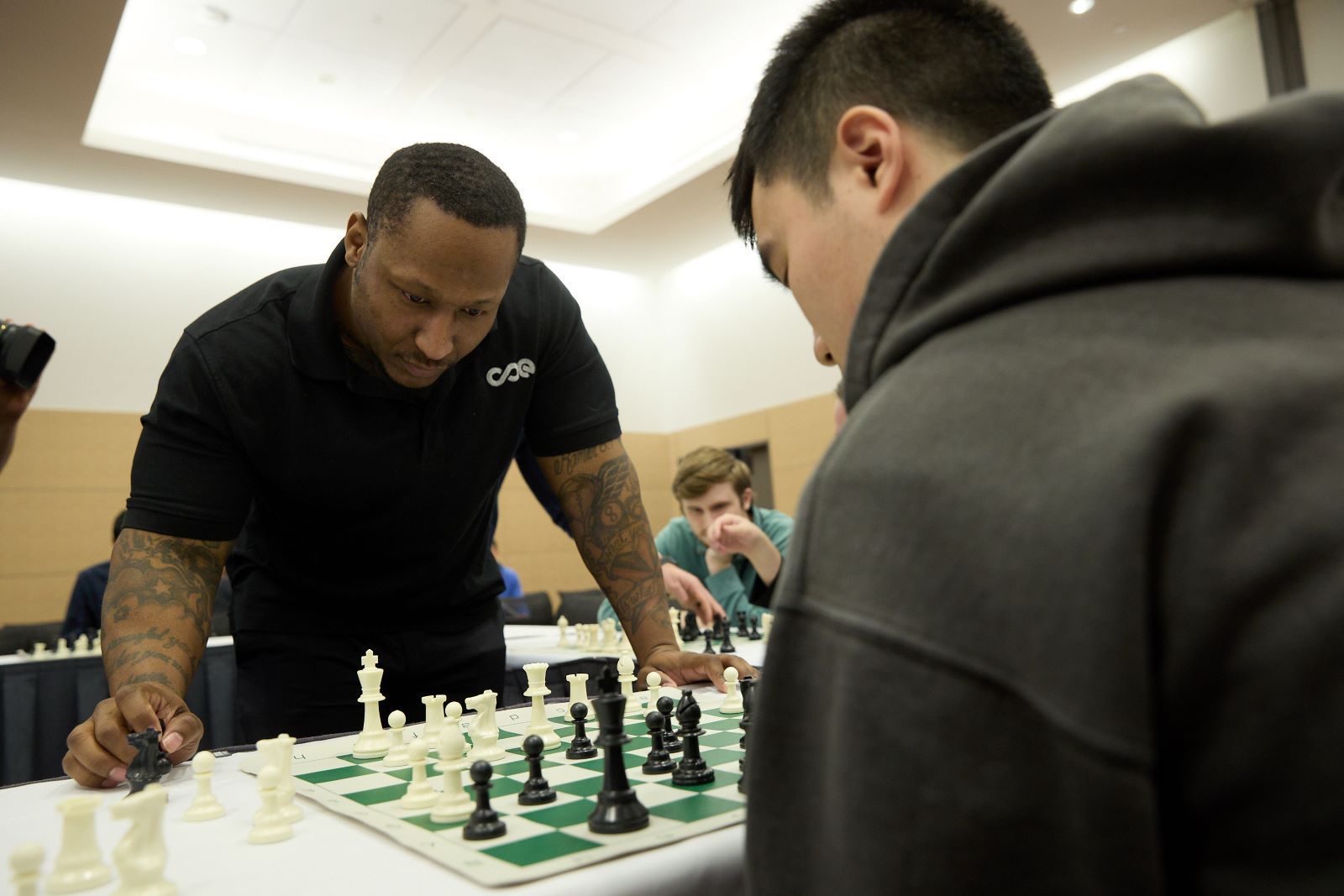
With Rensch asking the questions and members of the panels giving their views, here are the highlights of the discussion titled The Digital Gambit: Creating Compelling Chess Content For New Audiences:
On The Chess Explosion:
Morey: "I love the explosion because it's the greatest game ever invented. And I mean, I'm biased, but the fact that you can have what used to be a geeky, deterministic game be this rich and this dynamic, still in the face of computers and everything, like that is incredible.
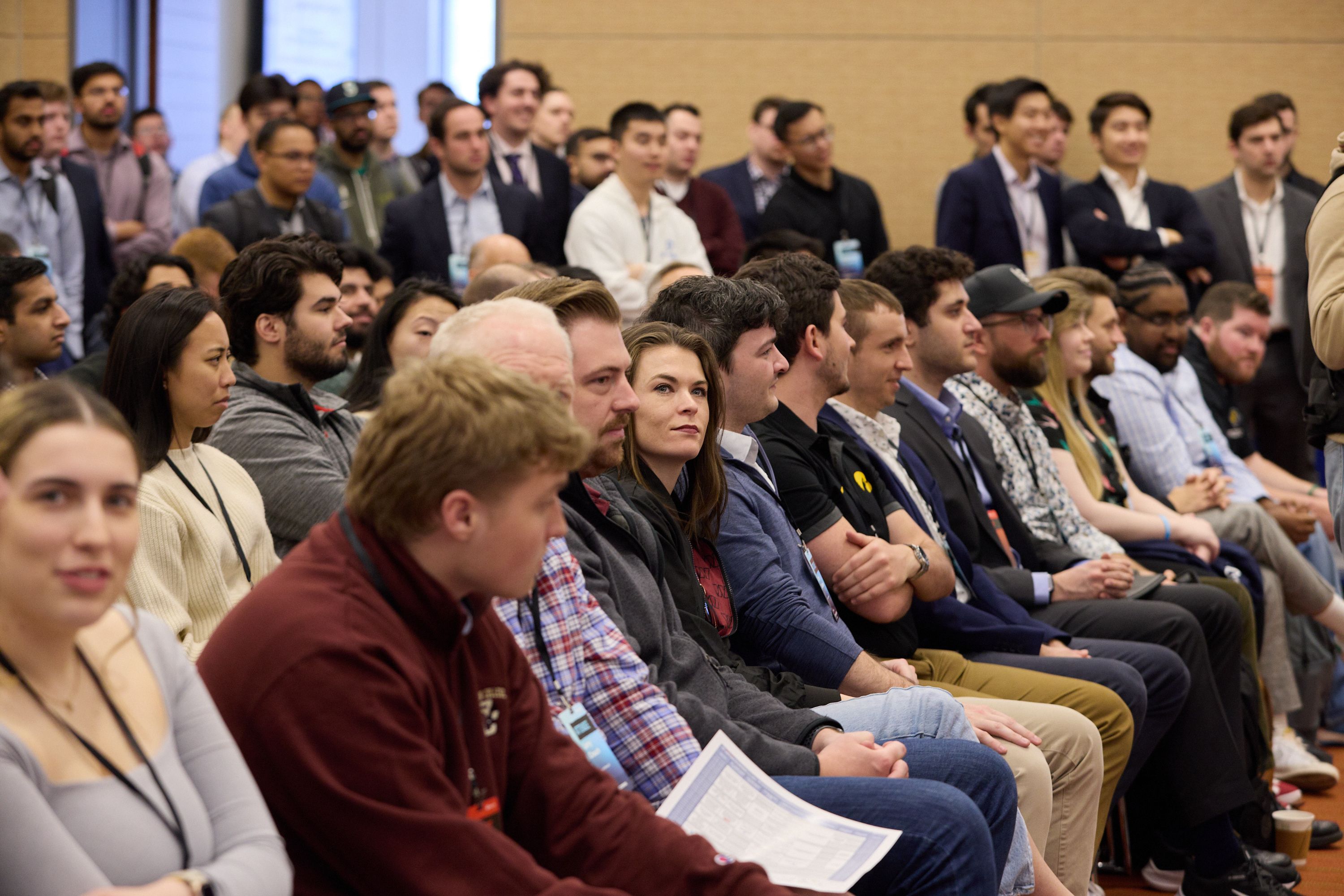
"You [Rensch] and I spoke how many years ago now, and it was pre-boom. Both of us were talking, we're like, people are watching Hearthstone. Why, why are more people watching Hearthstone, right? Hearthstone rather than chess. And, you know, it's been gratifying to see the growth for folks like Levy, Chess.com, your stream, your, well, your streams.
Both of us were talking, we're like, people are watching Hearthstone. Why, why are more people watching Hearthstone, right?
—Daryl Morey, Philadelphia 76ers
Rozman: "I would just say that we have so much that we can watch and so much that we can listen to nowadays. And in particular, I feel this effect has been felt, especially since 2020, once everything shut down, our media consumption went up. I experienced this myself as well. Sometimes I'll click on a new genre on YouTube, or I'll even click on something I'm interested in. And within five to seven minutes I'm off cleaning. I can't, I'm not even listening to it. And then I come back and then I watch it again. And, it's this weird disconnect.
It's that time of year once again. Looking forward to @SloanSportsConf once again clashing with the #chess world: https://t.co/LyQc9igw4d
— Daniel Rensch (@DanielRensch) February 28, 2024
"Or I'm fully enveloped. I'm going on a workout or, or whatever, like on a plane ride. And it's two or three hours of consumption. So it's a little bit of a disconnect. And with chess in particular, you can't have that disconnect. I mean, it's a little hard to listen to chess on a podcast. You generally need to see what's going on and be interested. And I just sort of took the approach of, okay, recaps of top tournaments, that's not really, there's not much coverage out there.
"Most things go into everything for 90 minutes. You analyze the deepest, darkest corners of every position, every possibility. When in reality, probably something like 95% of the audience is 1200 and lower, which is a huge disconnect. And in chess in particular, unlike other sports, we've talked about this a lot.
"I can watch any sport on the screen and, within five minutes, kind of understand what the objective is. Might not know all the rules and the details, but oh, there, that's the score. Those are the teams. And I can kind of see what they're trying to do. Chess is not like that.
I can watch any sport on the screen and within five minutes, kind of understand what the objective is... Chess is not like that.
—IM Levy Rozman
"And so I just try to cut out some of the more intricate things that might take 10 or 15 minutes to explain and do my best to summarize that in 30 seconds to a minute. It's hard because I'm cutting out some of that perfection.
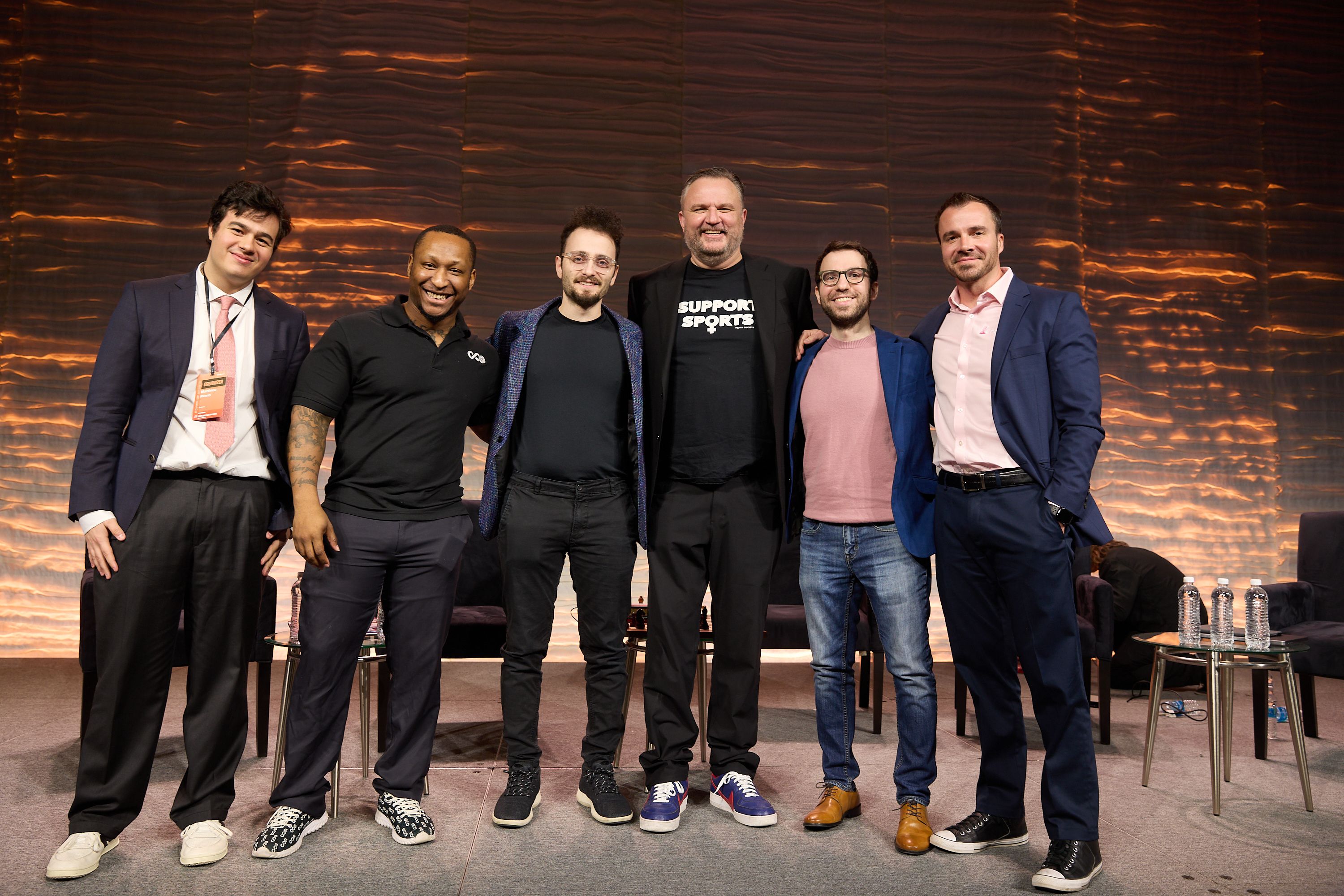
"I'm cutting out some of those intricacies where an experienced viewer of chess might watch and go, 'Well, he didn't get into all of that, but that's why we have other content and we have other channels.' But that's sort of my approach. It keeps them entertained."
Canty On Making Chess Broadcasts Fun
Canty: "My whole objective, I guess, in chess is just to make it fun, bro. Of course, for me, I remember I used to watch, for instance, you remember this, Robert [Hess], when I used to call him Roman [referring to GM Roman Dzindzichashvili]. I still call him this 'Roman Dz then slap the keyboard.'
"Basically what that means is there's this guy, this coach named GM Roman Dzindzichashvili, basically his last name is like, you look at it and you're like, those letters don't go together. You know, so it's like 'Roman.' So if you ever look up his name, you can never find him. But if you type in 'Roman,' you can Google this too, then slap the keyboard, type 'chess' in and his name comes up, right? Google's like, 'Did you mean Roman Dzindzichashvili?' I'm like, 'Yes. Oh my goodness.'
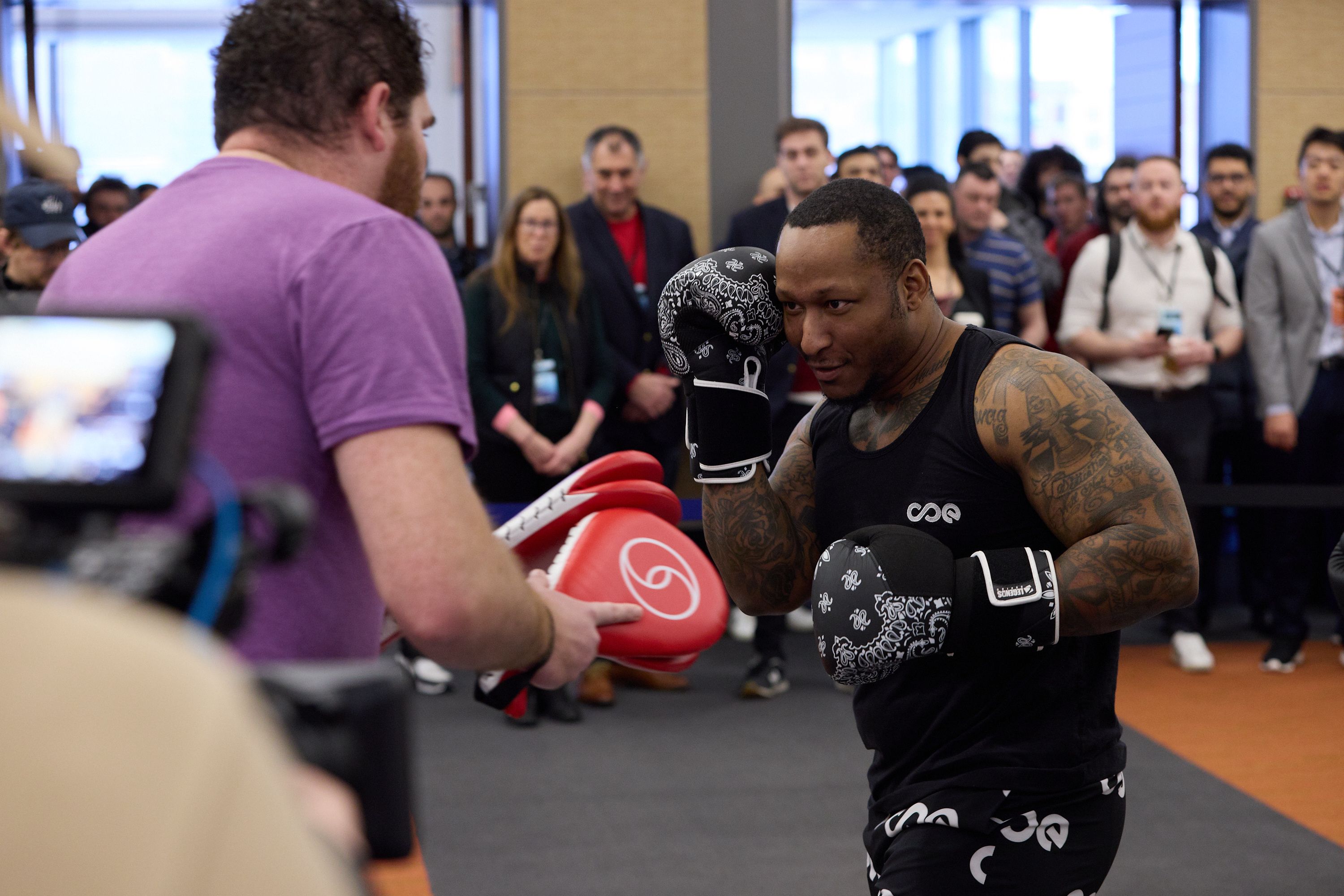
"But you know, I remember watching his videos back in the day. He had Foxy chess openings and stuff like that. And I remember he'd be like, 'And the pawn goes to e4,' and you was sitting here like trying to stay awake watching a video. And it's so boring. But you need the content. It's like college in a way, but you need the content. But oh my God, it's so boring. Right? So I make chess fun, right?
"I remember when I was just being myself, being social, and just wanting to make chess fun. And that's what my whole objective with chess is to do that and just be myself. And it just kind of worked for me.
I remember when I was just being myself, being social, and just wanting to make chess fun. And that's what my whole objective with chess is to do that and just be myself.
—James Canty III
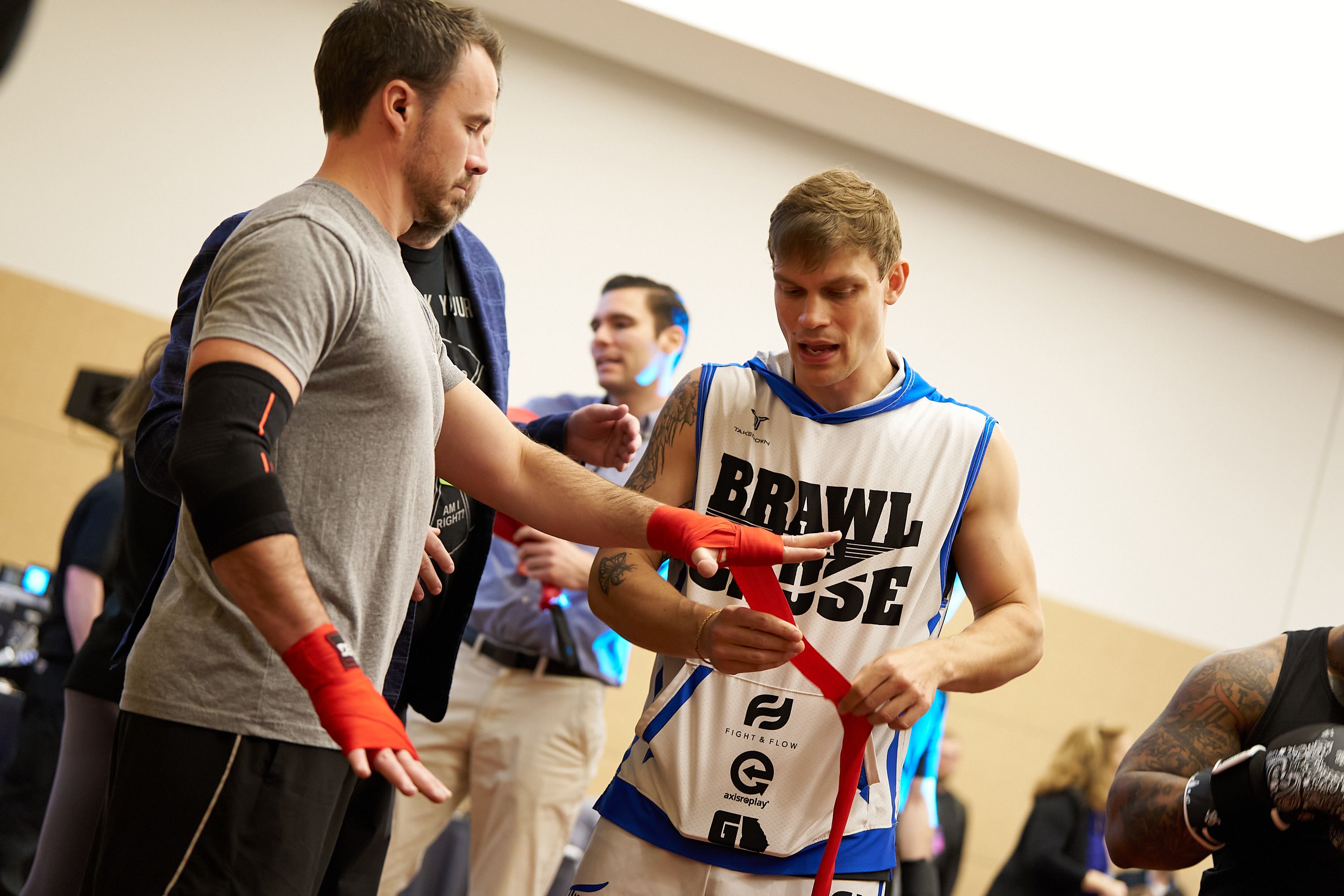
"We kind of blew up that way because I'm relating to people. We make things like, 'What do we say? Hit 'em before we split 'em!' So what that means is that you make a move that sets up a move and then they move, you 'hit 'em before you move and you split 'em' [on the next turn], basically. So that's what it is, in some of the fun things we say.
"We also say anything on the fifth rank is 'number five in live.' And 'anything on the four is score.' Anything that rhymes just to make people more engaged."
Hess And Morey On Making Chess Broadcasts Fun
Hess: "I'm always doing research. I'm always diving into the players, trying to learn more about their backstory, trying to figure out their strengths and weaknesses in a way that's not just, you know, on the paper.
"But I think the reason chess is unique compared to pretty much anything is that there's an auto-correct. As soon as you make a move, there's something that tells you you've done something wrong or you've kept the status quo.
But I think the reason chess is unique compared to pretty much anything is that there's an auto-correct.
—GM Robert Hess
"Honestly, I've had many conversations with Danny about this. Because the bar goes up and down, you really just see people make bad decisions. And so I try to emphasize why a perfect game—even though nothing has changed on the so-called scoreboard—is quite exciting and I need to break it down.
"That is quite exciting and I need to break it down. And in a game, in a discipline where you have this objective quest for the truth, because there is the best move that you can find. And when you don't find it, you're immediately reminded that you missed something because the engine just says, 'There, all of a sudden your opponent's winning.' I think that kind of quest is really enjoyable for a lot of people in a world of, frankly, a lot of uncertainty."
Morey: "For me, Robert's the Jeff Van Gundy of chess commentators. He's here this year. It'll be exciting. He's the intelligent fans watcher, basically, and he breaks down the game.
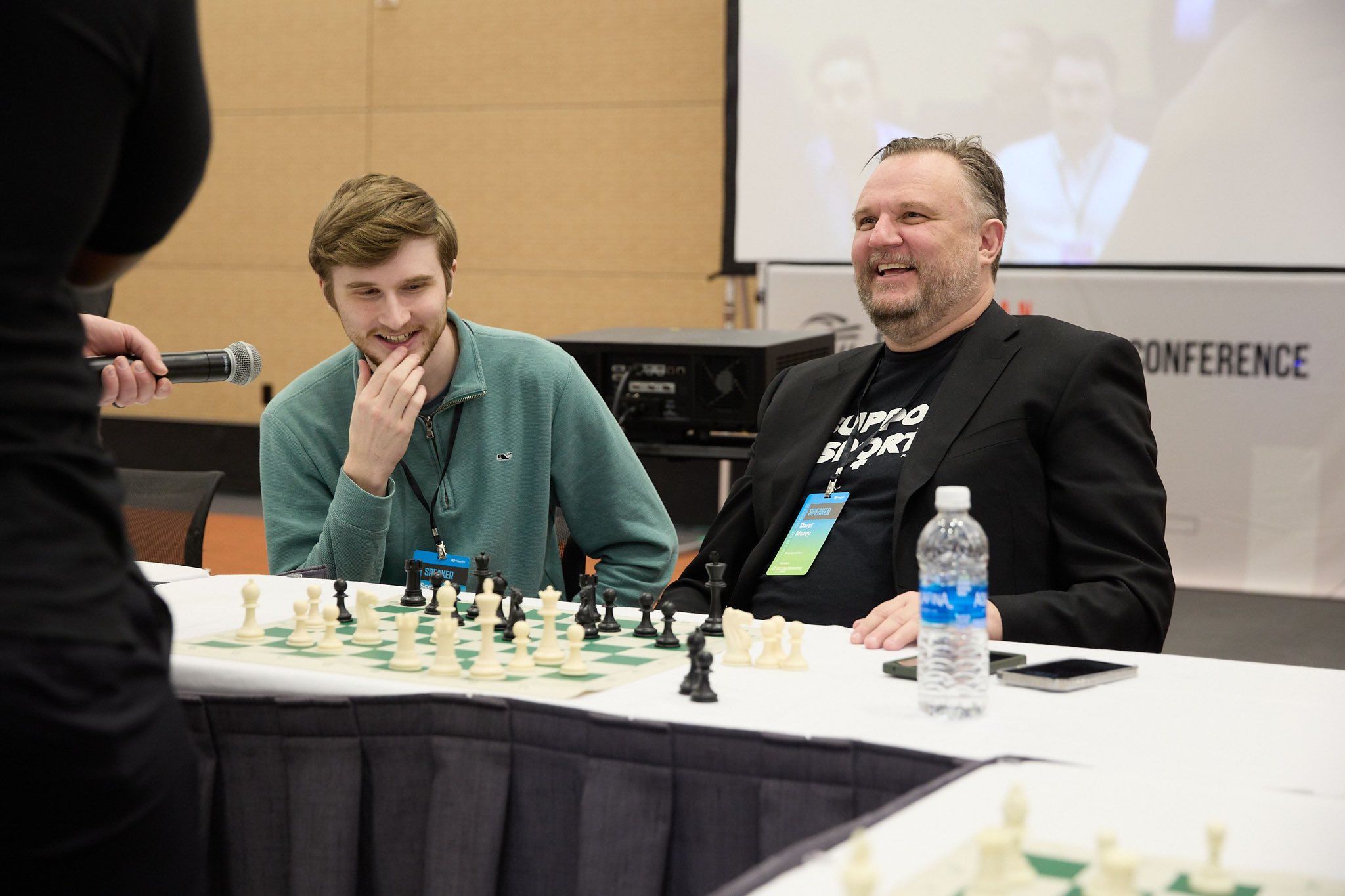
"To your point, you can imagine watching a basketball game. The game, the score can be tied, but the two teams got to that score in an extremely different way, right? One is playing stronger defense, one is playing stronger offense. So one is guarding the pick and roll a certain way. And I feel Robert is the person people go to, 'Okay, I'm gonna see how this game is broken down.'
"I feel chess is catching up. We have the ESPN of watching the games, it's a little bit like SportsCenter. There are catchphrases, there are things where you still pick things up, you're breaking down the pick and roll, and things like that. So I think it's a lot of fun."
I feel chess is catching up. We sort of have the ESPN of watching the games, it's a little bit like SportsCenter.
—Daryl Morey, Philadelphia 76ers
Do Formats Need To Learn From The Evidence Of How People Want To Consume Chess Content? Basically, Should Classical Chess Get Faster?
Rozman: "It's a fascinating debate because we have to decide what the goal is. So if the goal is to play the highest-quality game of chess, we don't want to interfere with that. We just want 99%. Yeah. We just give them six, seven hours. I mean, back in the day we would adjourn the game and you would go to your hotel room and analyze. Because you didn't have a computer, you would just analyze with people. So that was the way they used to do things.
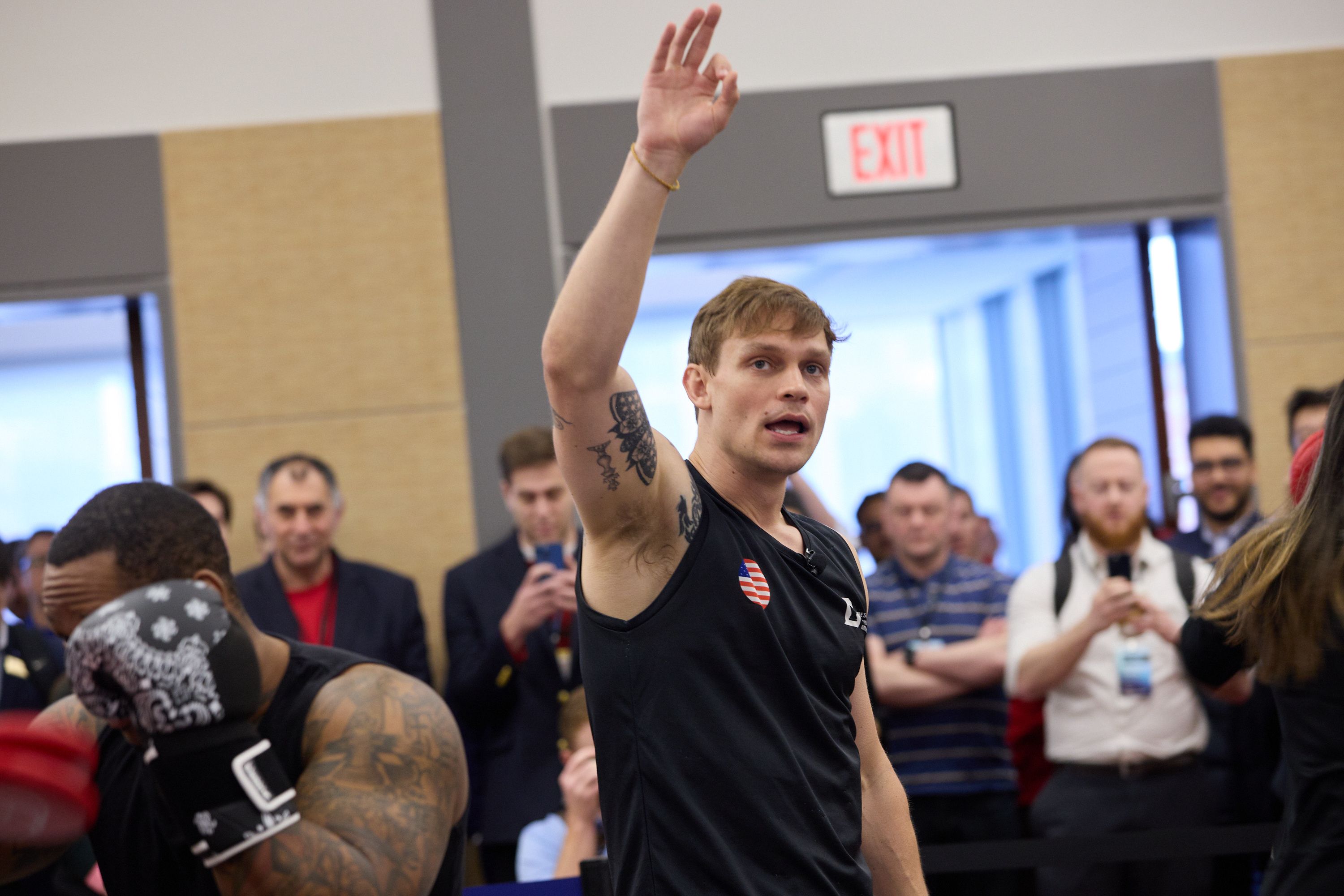
"The format of six, seven-hour games existed because 50 years ago people didn't know openings anywhere near the level they do now. Your average nine and 10-year-old now knows more openings than the world champions of the 20th century, which is, just think about that, just knowledge from thousands, if not, you know, millions of games being played every single year.
Your average nine and 10-year-old now knows more openings than the world champions of the 20th century.
—IM Levy Rozman
"So from that perspective, speeding up the game is probably okay because the players now don't need as much time, but we are trying to kind of interfere. We are trying to create a little bit more uncertainty, a little bit more chaos, trying to get them to make some mistakes.
"But then if the end goal is to make it commercially viable, three to four-hour packaging, yeah, that's probably the way to go. But ultimately you are kind of messing with the purest form of the game.
"I've always said chess is pretty AI-proof. All these industries, all these conferences, they talk about AI and the existential threat that it poses to businesses and individuals. But we've sort of lived in harmony with our AI overlords for 30 years. Yeah. We have to explain what the AI is doing and sometimes we can't. We just kind of laugh. We look at it like a zoo animal and we're just, wow. Yeah, somebody should set it free.
We've sort of lived in harmony with our AI overlords for 30 years.
—IM Levy Rozman
"But yes, to answer your question, it is very tough to make classical chess exciting because it's six, seven hours. I don't watch the world championship broadcast all the way through. I turn it on, I go run some errands, I come back, I say, 'Oh, two moves were made in 90 minutes. Dope. I'm gonna leave again.'"
And What About Fischer Random? Can Variants Be Played At Longer Time Controls Too?
Canty: "Absolutely. I think the formats that Chess.com allows are just changing the game in itself. When I was in Dubai for the Global Chess League, I was out doing commentary, and they were just talking about basically cricket. A lot of Indians were there talking about how big it was. And they were talking about how cricket has different levels of cricket.
"I had no idea, didn't even know it [cricket] was as big of a sport. And it was the cricketers, the 12-hour game. I'm like, 'That's insane. That's more than chess. What are you talking about, multi-day game all-day or something? That's crazy!'
And it was the cricketers, the 12-hour game. I'm like, 'That's insane. That's more than chess... That's crazy!'
—FM James Canty III
"And then they was, 'Yeah.' But for the guys like you, 25 minutes. I'm, 'Oh, I'll watch that.' So in chess is kind of the same way of like, I don't wanna watch no seven-hour broadcast.
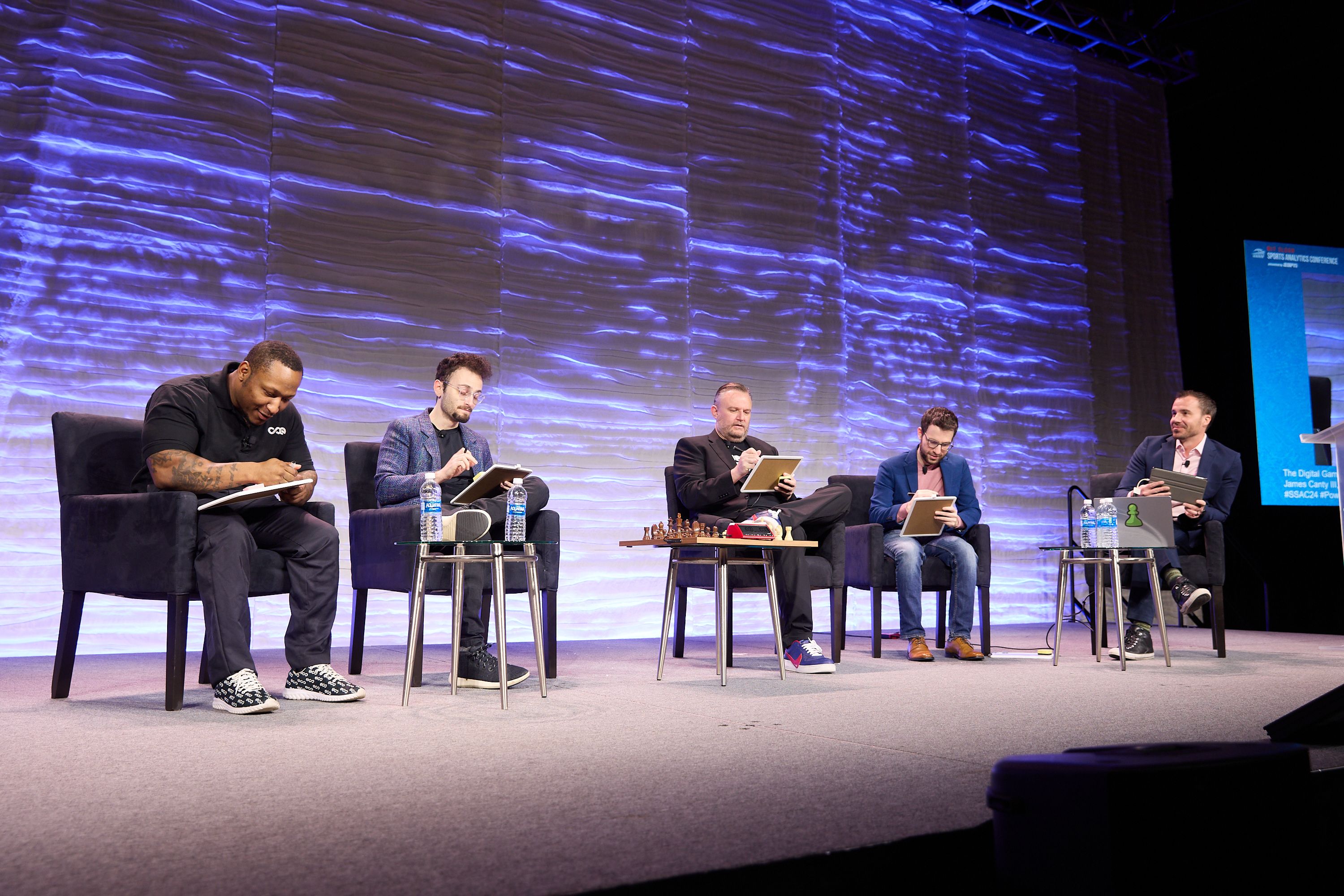
"I remember going to sleep and waking up was like, 'What time is it? Five hours. I got three hours, went to sleep, took a nap. Woke up in the day and still playing, right?' So yeah, it was, uh, it was that having that long of a format, the real chess, you know, you can watch it, you can have that, but then you got the 30-second games that I'll post clips online of me winning a game in 15 seconds.
"So like we have the team chess format [Team Chess Battle] you guys were just playing in, which is awesome. People love that format as well. I saw the chat, I was very active. I saw how engaged the chat was. They loved the commentary. They loved to see the backside of you guys talking.
"These formats, I think, change the game and it gives it appeal to the masses. Everyone in chess can now find something they like and stick to it.
These formats I think really change the game and it gives it appeal to the masses.
—FM James Canty III
What's More Important: A change Of The Format And Time Controls, Or Repackaging And Presenting Chess In A More Accessible Way?
Hess: "I think it's an order of operations thing that, you know, chess has gained more fans, but seven-hour chess hasn't gained more fans. But the more fans that enter the ecosystem, the more people who will probably watch long games, just like James was talking about cricket.
"I think that yes, chess often does need to repackage itself to have quicker time controls to allow people to watch and not have to sit through so many hours of content. But I do think that formats like the team chess that we're doing is great because what sport do you get where you can listen to the athletes or players' thoughts?
... what sport do you get where you can listen to the athletes or players' thoughts?
—GM Robert Hess
"The point is that I think that chess doesn't need rebranding in its way. But I do think that getting more and more people into chess will mean that more people watch all sorts of formats involving chess. And just on the team format point, do you know how cool it would be to hear, you know, Joel, his thoughts as he's, you know, has his back to the basket, whether he's gonna sense a double team. That would be amazing.
"This team format allows people to hear in real time what players are considering. I think that's the beauty of chess. But that's often untold in traditional chess because they're sitting there silently, as Levy said, you can go to sleep for like two hours, then you come back and barely anything has changed. Maybe they just repeated the position. And so the most exciting things that happen in chess are often in the players' heads."
And so the most exciting things that happen in chess are often in the players' heads.
—GM Robert Hess
Rozman: "I just quickly want to jump in on that, like the single greatest threat or problem to professional chess and the entire top-level circuit is that it's completely disconnected from the general population and the way people enjoy chess.
"Chess is one of the—might be the most unique activity that four generations of a family can enjoy on social media. I've never seen something like it where four and five-year-olds can watch chess and YouTube videos, and so can 95 and 105-year-olds in the same family. And, and they're just playing. They're learning openings, they're trying to trick each other. They're getting out in front of each other.
Chess is one of the—might be the most unique activity that four generations of a family can enjoy on social media.
—IM Levy Rozman
"You can play with people in your class and college at work. You can play with, you know, grandma and grandpa. And there's really nothing quite like it. But the issue is top-level chess is a bubble. They're completely disconnected from this reality of the way the general audience enjoys it.
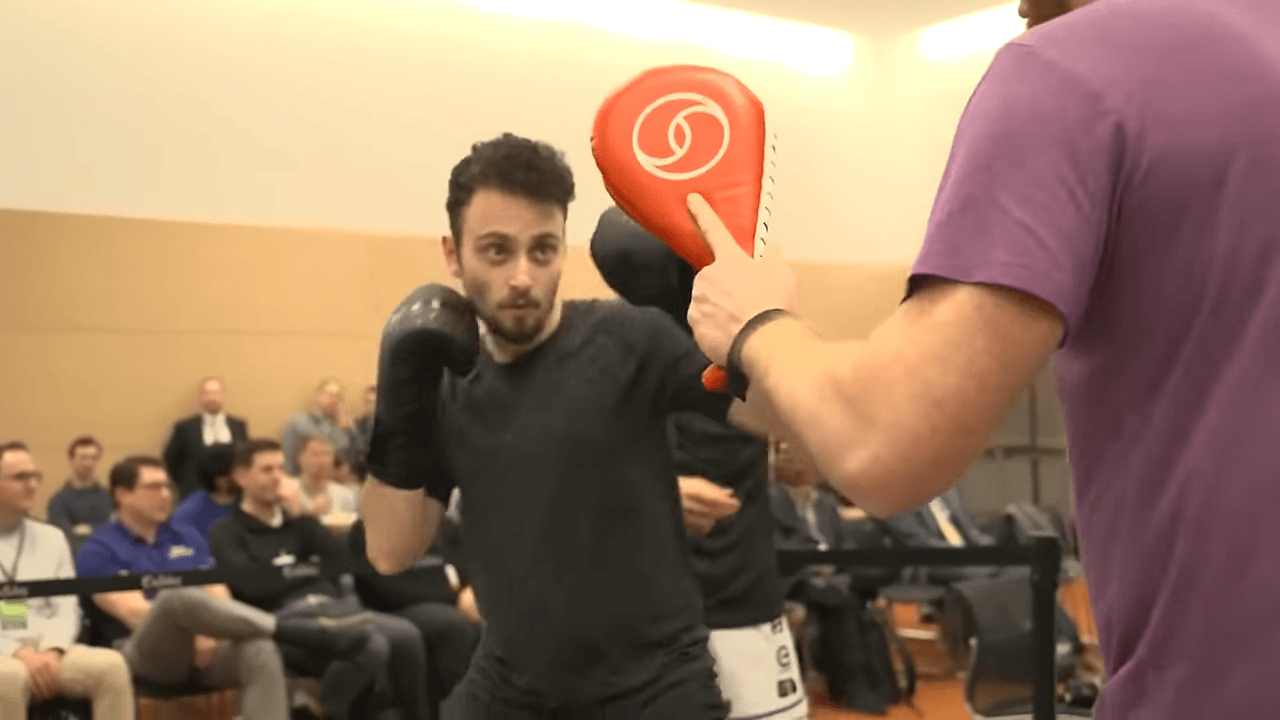
"The circuit of top-level tournaments doesn't make any sense for like 50, 60 years. It's just been all invitationals. If you make the top 10, we'll invite you to this prestigious tournament. We'll give you some money that nobody knows about so you come play in the tournament, whatever place you get, you get a little more money and you go home and your goal is to be top 10 and your goal is to make this Candidates Tournament every two years where you try to qualify to beat the champ. And this happens every two years.
"It's like a UFC boxing style format, but there's zero money and the only money involved is God knows, you know, and every two years you can play for the ultimate title.
"We have a system right now where the best player, arguably of all time who has ever lived, doesn't care about the ultimate trophy.
We have a system right now where the best player, arguably of all time who has ever lived, doesn't care about the ultimate trophy.
—IM Levy Rozman
"That's what are we doing, right? That is the ultimate problem. We don't have a clear circuit. We have tournaments popping up left and right. Oh, that's kind of cool. Like the Global Chess League. I didn't even know, I had no idea what it was about, is there a second one?"
Which Needs To Change First? The Top Players Or The Formats Themselves?
Morey: "The formats for sure. What Levy's saying, just to boil it down for NBA fans would be if Stephen Curry right before the playoffs is like, 'Hey, there's this new global basketball league that's paying me way more money and I, sorry Golden State, I'm not gonna play this year.' That would be crazy. 'You see how you'll do without me,' basically.
"The fact that you don't have a common structure is holding chess back. I was also going to say back to the earlier discussion that every sport gets boiled down to these key moments now. So that's a trend everywhere, right? Like basketball.
"You guys need to get yourselves together about the trophies that matter because why do people tune in? They tune in if the outcome of that match matters to some big trophy. Ours is the Larry O'Brien Trophy.
"So your Speed Chess Championship gets a billion, billion views because it's gotten cred and it has the two top players playing, but the actual World Chess championship does not even have the two top players playing, which is, yeah, it's a problem.
... the actual World Chess Championship does not even have the two top players playing, which is, yeah, it's a problem.
—Daryl Morey, Philadelphia 76ers
Hess: "But I think one thing though is that in basketball, because they have so much money, like as salaries, they can just go play basketball and that's okay. Kawhi Leonard, he doesn't really, you know, talk to the media that much and that's okay. Lionel Messi historically in football, or soccer, he hasn't spoken all that much and done too much media. Now he's doing a bit more. But I think chess just doesn't have that luxury because there aren't the same financial incentives.
"So, to Levy's point, chess can branch out by people getting on social media, whether it's Levy and his channel GothamChess or Hikaru [Nakamura] streaming, Magnus [Carlsen] showing up from on stream from time to time.
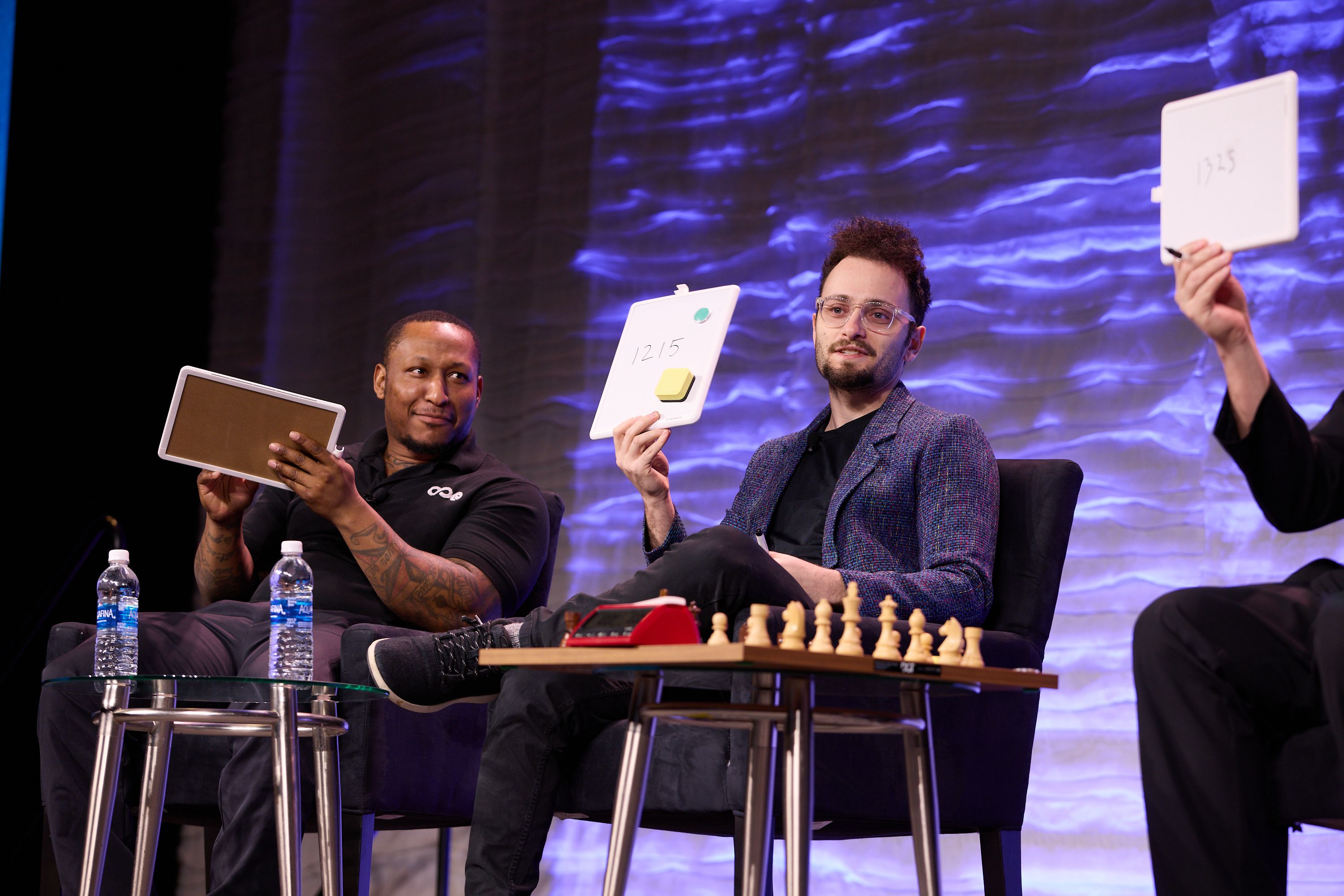
"But that does help the game because people relate to people. They're not just gonna watch a game and be like, yeah, I relate to that chess player. Unless you are already a dedicated fan. So I do think that more player interaction is a good thing.
But that does help the game because people relate to people. They're not just gonna watch a game and be like, yeah, I relate to that chess player.
—Levy Rozman
"I don't, as you said, blame the players because they just want to play chess and there's already this pressure on them to just find the best move each at every turn while the chat is like, 'How could you miss that knight fork?' and things of that nature. That's really seven moves deep. So there is just a lot of pressure from various angles. But I do think player interaction would be great for chess."
Has Cheating In Chess Been Good For The Content?
Canty: "Oh, it's been great for content [laugh]. Oh my goodness. It's awesome that all the cheating stuff that happened. I had people at the gym working out and they were like, 'Yo, man, you you heard of this?' I'm like, 'Bro, you don't even play chess. What are you talking about right now?' And so it's just awesome to see how big it grows.
"People who don't even know chess know about the cheating scandal stuff, but also cheating period in like online. I like to make content on it all the time.
It's awesome that all the cheating stuff that happened.
—FM James Canty III
"We just had somebody banned, literally last night I was in the hotel room streaming. We had a tournament. It was a 30-second tournament. So the whole game lasts one minute of chess and we playing our tournament or whatever, and a guy gets banned automatically. We like, 'Oh no, he playing too strong.' We just felt the strength of the guy. And we like, 'Yeah, he might be a little too strong, my guy, for your rating, little dog.' So I went in there and we checked and we were like, 'Yeah, brand, brand new account.'
"Basically what we do is we show it on screen. So I'm showing, 'Oh, okay, let's check the account. Let's see how many games you have.' And we make it a whole thing and a guy ends up getting banned. Right? So it also shows not only that Chess.com's on there, on like, on it on the back end. They're checking everything. Right. You know what I mean?
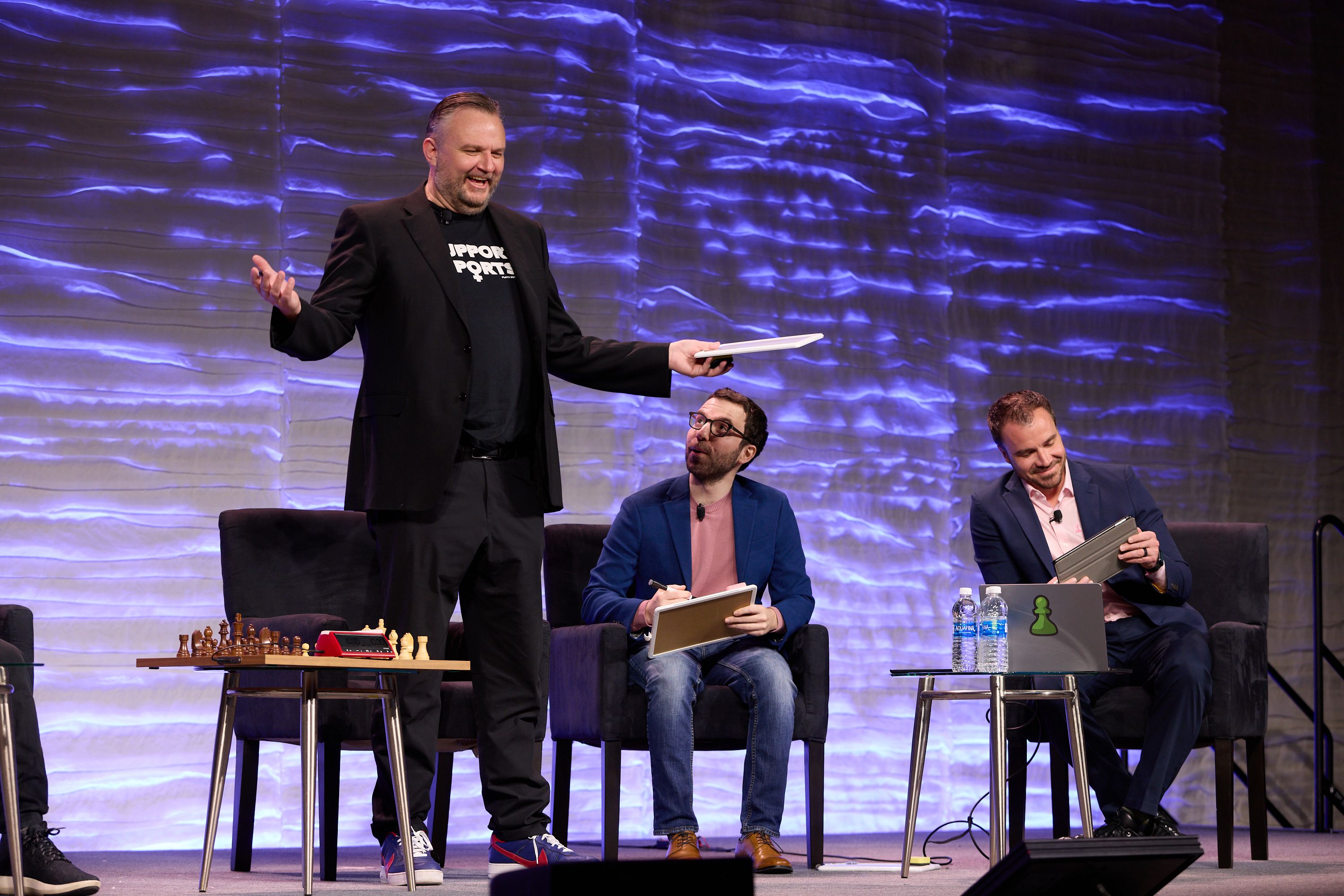
"They get paid a lot of money despite what they say. They get paid on the back end back there, but also it's fast and it's working. It also deters cheaters when you also put it on there. We are showing that this account is going to get banned. It got banned. And then anyone who thought about cheating may think twice. Also they know that our process is different. We're gonna check your account in front of everyone to make sure you didn't make your account today. We weren't born yesterday. You're not [rated] 2,800. I think it was just brahs made a show outta that."
Rozman: "Yeah. The cheating scandal. Magnus, Hans, I've always said in every recap of the like, next update that happened and the lawsuit, I've always said, 'I'm a content creator. I'm going to make content about this.' I'm always going to say it's good for content because look at the views right now. It's never black and white, no pun intended, but it's not always just positive or negative. It's gonna be both.
"I have also broadcasted playing cheaters and they get banned and I play them. I try to beat them in speed games, right? I do have to sit there and wonder, 'Oh, there's gonna be some teenagers watching this.' I'm like, 'Oh, if I cheat, I'll make it in a Gotham video.'
"It's never just, 'Oh, this will get people to stop.' Or this might influence some cheating, but it's life. It's just gonna be more people. There's gonna be more cheating. It's a game. People try to hack video games too.
There's gonna be more cheating. It's a game. People try to hack video games too.
—IM Levy Rozman
"My personal craziest case was the Indonesia scandal. Oh, man. Which some of you may know. Maybe you don't. That's crazy, bro. That was wild. That was in a minute.
"I'm gonna try. 2021, I'm playing a chess game. 10-minute game, just live on stream playing somebody. I'm like, think this guy is cheating. Right? Okay. Game ends. I lose, I report him. The guy gets banned that night, I'm laying in bed and my Twitter's blowing up. Wow. Because that account allegedly was owned by an older man who lived in Indonesia, whose son made a Facebook post saying, 'My dad was banned by the streamer.'
"The streamer got mad: 'He lost to my dad. My dad likes to play chess,' you know, and it went viral. It was like the perfect storm. I was getting thousands of DMs a second. Like, I have never seen anything. And they were messaging people I was following, they were sending death threats to like my family, me. And this was, this became such a big thing.
"They were inviting this father and son to the Joe Rogan of Indonesia, Daddy Corbuzier, like he was on the podcast there. And this all culminated with the Indonesian Chess Federation stepping in.
IM Irene Sukandar, who is, you know, international master strength, a very good player. They played face-to-face on this podcast for $20,000. All this happened within a month, the guy lost three-nothing. He was probably like 1400-1500 strength and went home with allegedly $7,000. But..."
Rensch: "He was a cheater."
Rozman: "Yeah, like that was insane. I've never seen anything like it!"
Rensch: "And it's funny because the GM Hans Niemann scandal was to follow that. No one knew that was coming. But I think I did more interviews about that case and how we could prove cheating than anything."
Morey: "I don't get why anyone cheats in chess. It's like the hardest thing to cheat at. It's even harder than the Olympics. So in the Olympics, when you play a match, they take your blood and even if you're way ahead of everyone, they store your blood. So that if yes, if you're using an advanced steroid, they'll ban you four years later. Chess is similar. Like you're not gonna get away with cheating. Like even if someone had Leela before Leela came out, which someone probably did, you'll play games. They're gonna later see that you're following a high-level neural network engine line. So obviously it's good content and there'll be a lot of conspiracies about it, right? Let's, you know, maybe you're creating cheating scandals? Danny saw [laughter]. I'm starting a conspiracy theory where Danny's creating cheating scandals."
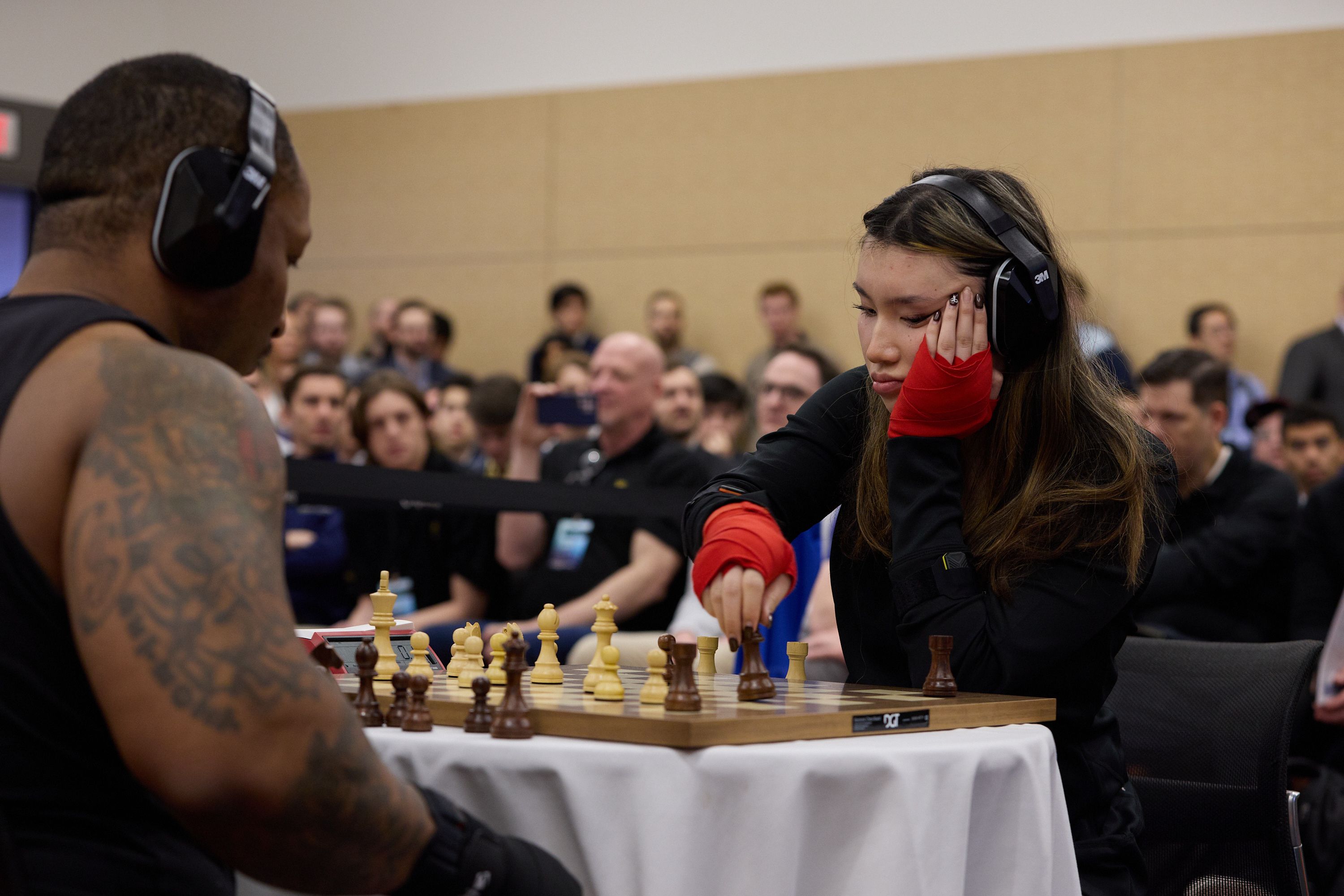
Hess: "It [cheating] is obviously a threat to the game of chess. Yeah. And I think even more so than the cheating itself is like the paranoia that surrounds it.
"You go on social media now, you see some of the best players of all time allegedly saying things or not accusing people, but, you know, calling their games 'interesting.' And I think it does set a dangerous precedent in the ecosystem of the universe of chess.
I think even more so than the cheating itself is like the paranoia that surrounds it.
—GM Robert Hess
"And I think, you know, Levy made this point that you may be incentivizing people to cheat because then they get featured on the GothamChess channel. And this is not streamers. It's not unique to chess. I was going to use the exact same example where people get arrested.
"There's a moralistic question for sure, but in terms of respect for cheating on your original topic, yeah, cheating is a problem. But it is Daryl's point. It's all stored somewhere. So even if it's not caught immediately, it's likely that eventually players who may cheat very intelligently will still get caught. But it's something that is clearly talked about frequently at the highest levels."
Rozman: "I will just quickly jump in and say, go ahead, say it. It is a wild time in chess where we just got, you know, grandmasters going on Twitter or X—we'll never call it X [laugh]. 'We'll never do it. We'll never do it,' on Twitter. And they're posting like, 'Nothing I could do, you know, I lost to this guy. He's too strong.' This is like what we do now. We just make these kind of backhanded cheating accusations. Just yesterday, a friend of mine sent me a tweet by GM Vladimir Kramnik, who's the 14th world champion, and he was insulting me. I made a post because just recently this grandmaster who's been getting accused, GM Jose Martinez from Peru, had a film crew at his house and he still got second place in the Titled Tuesday tournament.
This is like what we do now. We just make these kind of backhanded cheating accusations.
—IM Levy Rozman
"Listen, you know what I'm gonna say, like that's good, that's strong enough evidence for me to kind of, you know, make a tweet that says, 'Is this guy ever gonna get an apology for these accusations?' Vladimir Kramnik, 14th world Champion, and one of the greatest legends of the sport, responds to me and goes, 'Well, GothamChess never writes anything even remotely intelligent for anybody above the age of 12.' And I thought for an hour how to end him and I didn't even.
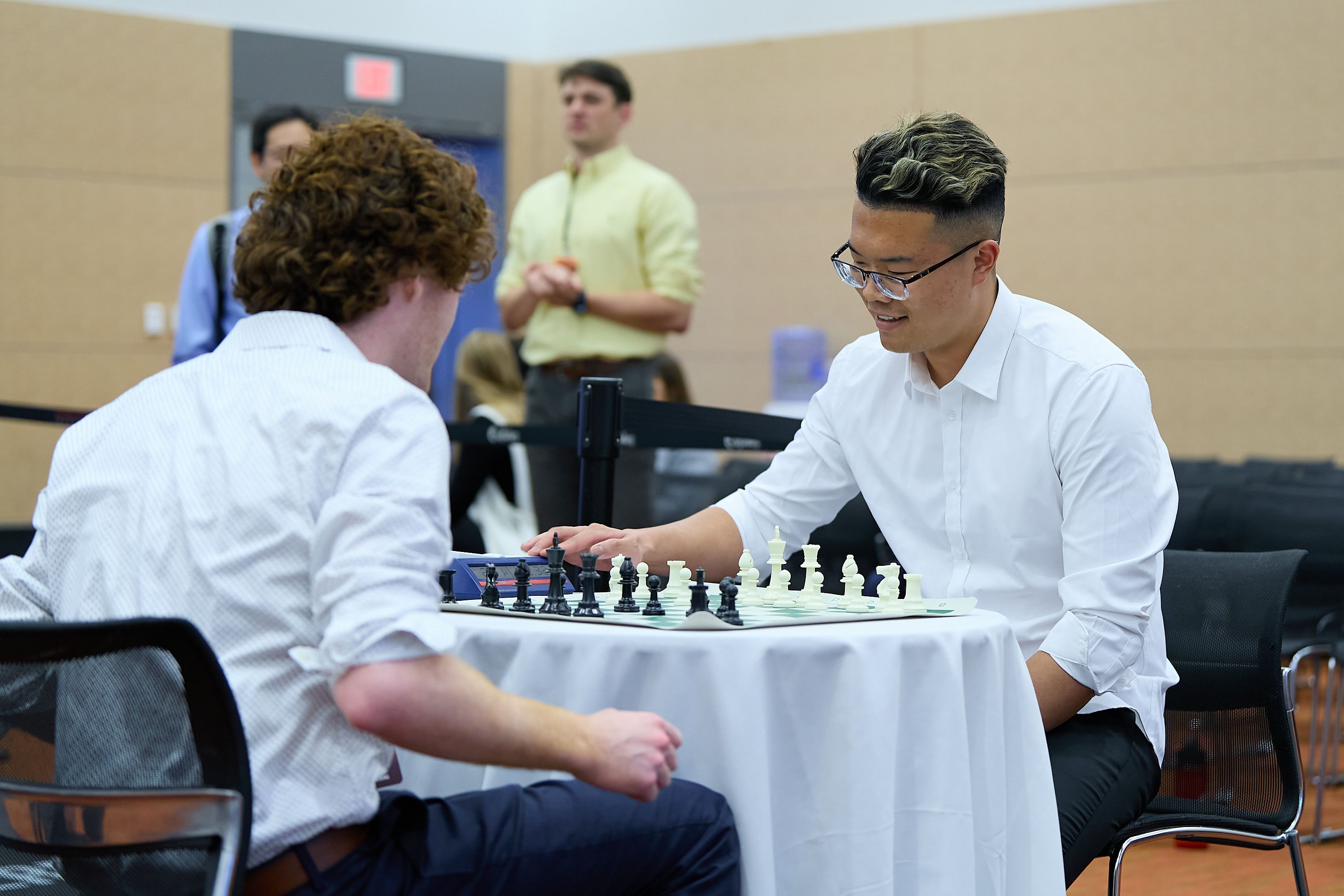
"I was thinking of so many different things to say because it's so ironic. He is on Twitter eight hours a day at this point, just arguing with people and even on that post, he was arguing that he was still cheating.
"This is what we live in because the international governing body will not do anything about it. And what would happen if in tennis, the 10th-ranked player just started coming out saying everyone's on steroids. He's on steroids? Is there punishment for this type of stuff?"
What Does Chess Need To Do Going Forward Into The Next Five Years To Continue To Reach Broad Audiences?
Morey: "I think it's straightforward. You guys need an NCAA tournament for chess. Nice. Every game's organic armageddon, one and done. Let other players in. Have it like be a tournament out of about 128 players. So you get to play, it's not always the same. No offense to GM Fabiano Caruana and Magnus [Carlsen], that's not the same three people playing every tournament. And literally, so you can have someone else win a few rounds and you have [GM Jan-Krzysztof] Duda, like, become a brand name because he advanced to the final eight in that tournament.
"You guys need new content that's exciting and you tune in and 'one and done' is the most exciting. The players would hate it, but it would be very exciting."
Hess: "Yeah, it's, it is a good recommendation. I think an open system would be massive for chess.
"It's great to see Magnus win. He'll win no matter who competes, but the fact that they're all the same players over and over again, I think it is bad for the game. So I think you're right that some kind of open system, more like tennis would be great.
... the fact that they're all the same players over and over again, I think it is bad for the game.
—GM Robert Hess
"I do think that chess, because it hasn't had a solid foundation, it just quickly hops to a new thing all the time. And we were talking about this last night where some wealthy patron comes in, let's do that new thing, let's do it. But you don't know what works because you think this isn't working, but you haven't given it the time to solidify its fan base and viewership. So I do think that making chess more accessible to people is huge. Having a structure that players respect. Not just the game but one another instead of just accusing people.
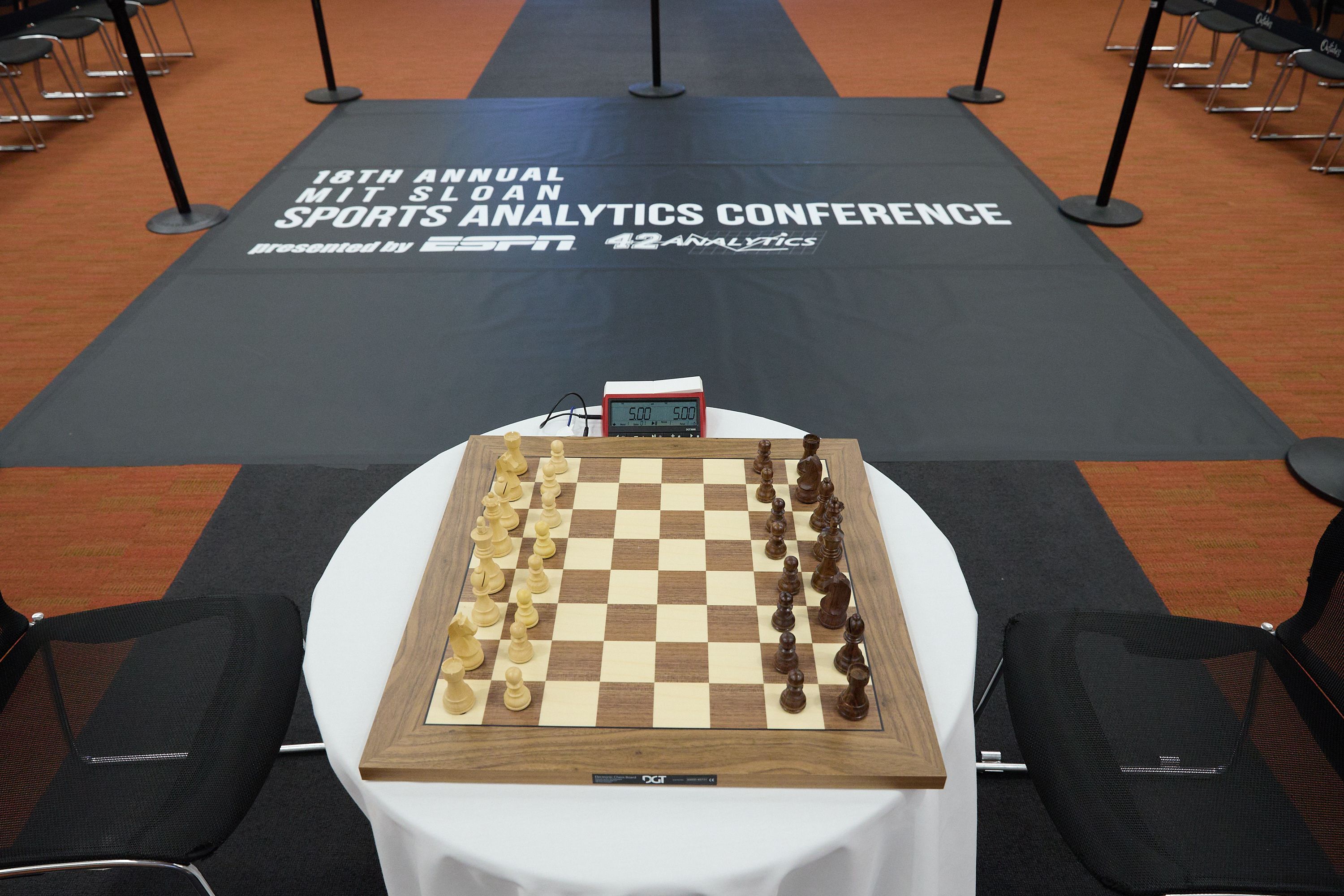
"We also have to listen to players who are accusing others and say like, you know, this is may be a problem that we're dealing with, but I just think that everyone has to be more cohesive and have like a collective front versus as individuals. Chess is everyone doing their own thing.
I just think that everyone has to be more cohesive and have like a collective front versus as individuals.
—GM Robert Hess
Rensch: "Love it. Great notes. I've got nothing to add. James Canty, Levy Rozman, Daryl Morey, and Robert Hess. Thank you everybody for being here."

